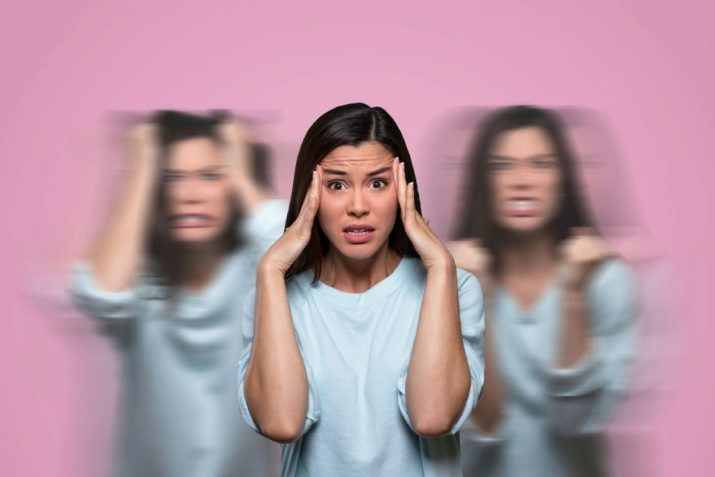All About Chronic Stress

Any person can experience strong internal stress, which makes him live in a constant alert mode. Subject finds it difficult to control a prolonged situation that undermines physical and psycho-emotional health. It's about chronic stress.
What it is?
Chronic stress refers to a pathological condition in which the adaptive mechanisms that help the body survive the influence of adverse factors are weakened.... Under these conditions, the level of adrenaline, dopamine and norepinephrine increases. The feeling of growing anxiety and impending threat, which lasts more than 2 weeks, indicates the onset of a chronic stress state. Continuous anxiety disorder and regular experiences provoke permanent stress.
Acute stress occurs as a result of a powerful one-time shock, such as the sudden death of a loved one, an argument with a partner, or serious injury. In this case, the body is able to cope by mobilizing the accumulated resources during a long calm state. For a healthy individual, acute stress poses no danger.

In a chronic stressful situation, mobilization mechanisms designed for short-term actuation function in a constant mode... Then the exacerbation subsides, the symptoms are smoothed out. A person's life is returning to its former course, but the appearance of even a minor stressor leads to a new surge of stress.
Persistent nervous overstrain, which causes exhaustion of the body and brings severe mental suffering to the individual, is called distress in psychology. Permanent stress has a negative impact on an individual's life.
Constant stress over several weeks prevents you from making the right decisions. A person succumbs to depressive experiences. His self-esteem decreases markedly. A long process provokes neurotic and somatic diseases.

Causes of occurrence
The chronic course of stress can appear as a result of past traumatic situations or adverse events occurring at this time. Sometimes a person winds himself up with memories of past failures. Internal experiences of previously lived situations in which defeat could have been avoided often lead to the development of depression. Events taking place at the moment are losing their value. A person shows indifference to them and to his own person.
Often, stress is prolonged due to uncertainty of circumstances and a long wait for something. Sometimes a chronic disorder is provoked by more frequent short-term and superficial stressful situations. Genetic predisposition plays an important role... In this case, the person is knocked out of balance by a minor effect of the stressor.

Prolonged stress can arise for a variety of reasons:
- more frequent quarrels with others;
- regular heavy loads;
- unsatisfactory living conditions;
- unfavorable environment in the work collective;
- lack of fulfillment in the professional sphere;
- family troubles;
- failures in personal life;
- hormonal imbalance;
- addictions;
- financial difficulties;
- lack of self-confidence.
Sometimes a person experiences several stressors at once: in the family - daily quarrels with a spouse, at work - constant overtime, in relationships with friends - nagging that has appeared on their part. The piling up difficulties and intractable problems provoke the development of lingering stress.
Physiological and psychological factors have a significant impact on the duration of the stressful state of an individual.

Physiological
Living in an ecologically unfavorable region or an area subject to frequent natural disasters involuntarily forces a person to live in constant stress. Long-term stress can be caused by working the night shift. Some are oppressed by the daily monotonous work, lack of rest, lack of adequate sleep. Everyday unbearable physical activity often causes permanent stress in athletes.
Difficult childbirth or difficult pregnancy can unbalance a woman for a long time. Chronic wasting illness, regular medication, frequent hospital treatment, long diets lead to prolonged stressful situations.

Psychological
Permanent stress is caused by internal unconscious mental processes. Most often, stress takes root where there are frequent family scenes, quarrels with people around, outbursts of irritability and anger, frustration of hopes. Emotional stress can arise due to an unfavorable microclimate in the work collective, due to a lack of communication or unrequited love. An emotional breakdown can occur due to a divorce, loss of housing, moving, protracted major repairs, an incurable illness of a loved one.
Chronic informational stress occurs in most students during the sessional period. The passing time is usually perceived by women as hard on the emotional level due to the rapid fading, loss of former beauty and the extinction of the general biological state.Elderly representatives of the stronger sex experience the deepest stress in the event that by the onset of adulthood their hopes for a successful career and financial stability have not been justified, their hopes have not come true.
The emotional stability of the individual is of no small importance. Strong sensitivity, vulnerability, pessimism, increased exactingness to one's own person and other personal qualities due to the type of the nervous system lead to a prolongation of psychological stress.

The main symptoms
With chronic stress, a person is always tired. The condition does not improve even after adequate sleep. Often, the patient's character changes greatly. Subject loses sense of humor. He seeks to limit social contact, because he does not enjoy communicating with other people. For this reason, resentment towards colleagues and management can arise. Often dissatisfaction with one's own field of activity and one's own role in the professional environment is ripening.
Constant anxiety leads to a sense of hopelessness. Sustained despondency devours the soul. The individual feels his own powerlessness. Sometimes he doesn't want to live. A person wants to run away from reality, to hide from pressing problems. Some may become addicted to alcohol or drugs during this period. Feelings of dependence increase.
Someone loses interest in intimate relationships. Subject begins to neglect domestic and work duties. The fairer sex is characterized by mood swings, moodiness, excessive tearfulness, vulnerability and resentment. Sometimes the temperature may rise.
For most women, during permanent stress, the rhythm of the menstrual cycle is disordered. Some even complain about the onset of infertility. Many ladies notice a reluctance to communicate with the stronger sex.

Experts identify other common characteristic features for all:
- complete breakdown;
- apathy, lack of joy;
- a state of depression;
- absent-mindedness and forgetfulness;
- decreased memory and mental activity;
- dizziness;
- tachycardia, spasmodic pressure;
- headache;
- increased sweating;
- deterioration in hair quality;
- uncontrolled appetite;
- indigestion;
- restless sleep;
- frequent mood swings;
- irritability, nervousness, bouts of aggression;
- panic attacks, nightmares;
- isolation;
- increased sensitivity to loud sounds, noise and bright light.

Effects
Chronic stress is dangerous for its long-term effects on the personality. If the subject is in a stressful state every day, then his body loses its ability to quickly recover. Life resources begin to weaken, and vulnerability to negative external influences appears. The chronic course of emotional stress sometimes leads to death.
Long-term stress depresses the psyche and accelerates the aging process... The individual's skin elasticity decreases, deep wrinkles appear on the face and neck, hair loss increases, and the condition of the nails worsens. The subject cannot concentrate attention, get out of problem situations with dignity, overcome various obstacles, and make serious decisions. Nervous breakdowns become more frequent, leading some people to suicidal thoughts.
When the body does not have time to recover, exhaustion gradually sets in. With a decrease in the adaptive abilities of a person, vulnerability to external factors increases. Prolonged stress leads to a decrease in immunity. While exhausted, the subject may suffer from frequent colds. Some seize stress, which invariably provokes obesity and dysfunction of the endocrine system.
The risk of developing stomach ulcers and other diseases of the digestive tract increases.Some note a loss of appetite, others - the emergence of a tendency to overeat. Some develop constipation or diarrhea. Sometimes these phenomena are combined. There may be problems with the musculoskeletal system and the cardiovascular system.

How to fight?
Chronic stress requires the help of a psychologist or psychotherapist. The specialist will help the person to get out of the stressful state through the use of special techniques and medication. Psychotherapeutic work is aimed at the following points:
- search for factors due to which the ailment appeared;
- analysis of all the reasons that provoked the disorder;
- diagnostics of the type of response to a stressor;
- development of stress resistance.
Using various techniques, you can relieve the main symptoms and improve the general mood of the patient. The personality requires adjustment of life values, individual beliefs and goals. It is also important to master relaxation techniques.
It is best to use several methods together. First of all, you need to turn to remedial gymnastics, yoga. Auto-training helps a lot. The person with this disorder needs to make a lifestyle change.
First you need to calm down, get rid of worries, rest, change the environment and exclude the main stressor from life.

Quitting bad habits is also important. The patient needs walks in the fresh air, swimming and performing various physical exercises. In moments of intense experience, you need to make deep long breaths and slow exhalations for two to three minutes. Breathing exercises help you calm down.
The restoration of the body depends on adherence to the daily regimen, a balanced diet and a revision of the attitude towards people around. Try to eat, fall asleep, and wake up at the same time. Seek support from loved ones. Spend more time with them. A trip with the family to nature, a heart-to-heart conversation with parents, and meeting friends can help reduce cortisol (stress hormone) levels.
Experts recommend to devote more time to creative pursuits and other hobbies.... Refuse the use of alcoholic and narcotic substances, smoking. Morning tea with the addition of lemon balm and chamomile soothes a person. Thanks to the above actions, the individual acquires the ability to adequately respond to external stimuli during the day.

After eliminating the main symptoms, you can restore the body with the help of herbal baths. It is recommended to add to hot water decoction of needles, oregano, St. John's wort, mint and essential oils. They contribute to the normalization of sleep. Helps to get rid of permanent stress aromatherapy using bergamot, lavender and hops.
Before going to bed, you can resort to foot baths with the addition of an infusion of fir or calendula flowers.
Such actions eliminate the negative accumulated during the day, relieve psychoemotional overstrain, contribute to relaxation, rapid falling asleep and deep sound sleep.








